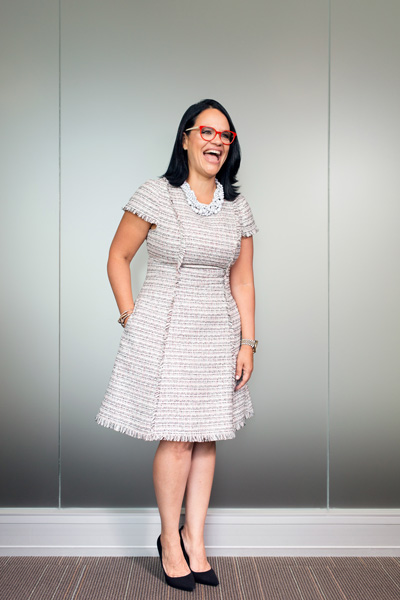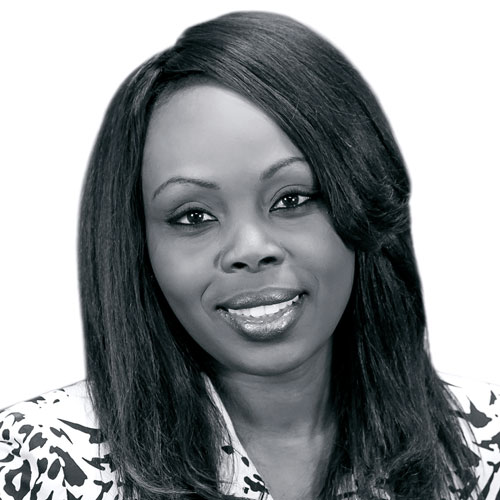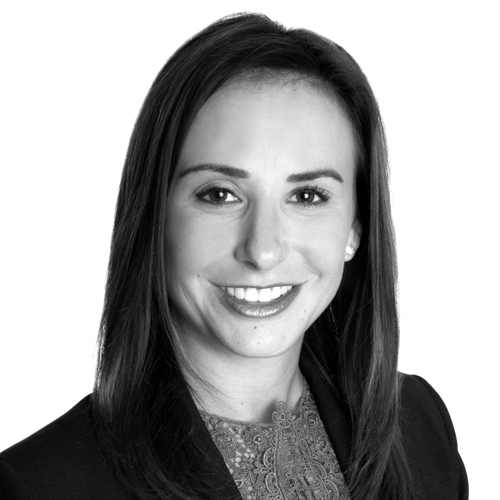In 1999, the CFO of a Miami-based health system called Barbara Ronda into his office. Ronda had recently become the director of managed care contracting, and the CFO had just found out. “He didn’t take to that lightly,” Ronda says. Although she had been offered and accepted the position, the CFO suggested that a “provider relations role was more appropriate for a woman.”
When Ronda refused to change roles, the CFO told her she would have three months to achieve a long list of unattainable goals. “I accepted, knowing full well the goals that he was giving me were unacceptable,” Ronda says. “I went back to the person that hired me and said, ‘We need to call in every single one of our relationships because we have to make this happen.’”
This challenge pivoted Ronda’s career. A month into the three-month deal, the CFO called Ronda back into his office, tore up the contract, and promoted her. In addition, he created a training program to prepare her for a senior leadership position. “Frankly, it was that training and that opportunity that he gave me that really allowed me to distinguish myself early on in my career,” Ronda says. “I used that moment as a platform to improve rather than to falter on.”

Now, Ronda is associate vice president and chief administrative officer at UHealth-University of Miami Health System and the University of Miami Miller School of Medicine. In 2016, she joined the inaugural class of the Carol Emmott fellowship, a yearlong healthcare administration fellowship that aims to transform midlevel career women’s weaknesses into strengths.
The fellowship has four goals: expanding knowledge and experience, creating constructive change in the fellows’ communities, increasing opportunities for further leadership roles, and building a network of health leaders. Through trainings in subjects such as public speaking and creating a personal brand, fellows gain practical skills that prepare them for senior positions.
The fellowship also focuses on overcoming self-defined barriers, such as balancing parenting and career obligations. “What the fellowship teaches us in that regard is to get out there, balance it, and own it,” Ronda says. “Own walking away to go take care of something for your child and then come back and continue your responsibilities.”
This is a familiar landscape for Ronda, who has two children and two stepchildren, all college-aged. “There was always an event, there was always a show, there was always a meeting or a presentation or an awards ceremony, and there were competing priorities at work,” Ronda says. “Success required understanding that both of my roles as parent and an employee in general required top priority.” That also meant continuing work after her children’s events or bedtimes. “There are moments that are harder than others, but it can be done,” she says.
In the fellowship, Ronda is paired with a female mentor who supports her in applying theory to practice. Most of Ronda’s previous mentors were men—“men who understood what my strengths and weaknesses were, and men who were willing to invest in me to help me propel forward,” she says. But many men, she adds, are unaware of the issues women face and their widespread implications. “If they were more keen to the statistics, on more occasions than not today’s male executives or mentors would be willing to contribute to the solution rather than to continue to propagate the problem,” she says.
The statistics are striking. While women make up a substantial majority of the healthcare workforce, they are considerably underrepresented in senior management roles, according to the Carol Emmott Fellowship website and the Bureau of Labor Statistics 2016 report. In addition, women are often paid less for the same role. “This isn’t just that we’re bad negotiators,” Ronda says. “We’re treated differently.” While the numbers aren’t encouraging, they are helpful. “If you’re able to identify the numbers more precisely, I think that’s the best way to increase awareness and to start to chip away at the problem,” Ronda explains.
“If you’re able to identify the numbers more precisely, I think that’s the best way to increase awareness and to start to chip away at the problem.”
To address gender disparities within her own organization, Ronda has developed a mentorship program and organized a number of symposia for young women in the University of Miami community. The goal is to give them a platform to speak and understand, and to create a formal networking opportunity for them. She also secured a staff member who addresses women’s issues in the office of diversity and introduced blind résumé review, removing any gender, age, race, or other personal descriptors from a candidate’s résumé. Reviewers then are focused exclusively on work experience, educational background, and publications. “This way, you’re really comparing apples to apples when you’re looking at competing candidates,” Ronda says.
Although Ronda always pushed to advance her own career, she didn’t grow up thinking of herself as a feminist. “I was actually told the other day that I was raised like a man,” she says. “I think it helped complement my frame of reference as a woman.” Ronda’s parents taught her to face adversity head-on. “To me, it was just matter of fact,” she says. “You just get up, shake yourself off, and move on—and you prove them wrong.”
As well as advancing gender equality, Ronda looks toward the future in healthcare politics. “Miami is a very parochial city, and understanding who the movers and shakers are and how to advance a mission is more than a science,” she explains. “The fabric of this community is so intertwined; it’s multinational, multigenerational, and has a number of socioeconomic influences that don’t fit any national mold.” A large part of Ronda’s role is anticipating the national landscape challenges and changes and applying that to the transformation of the organization.
The political, healthcare, and equality landscapes all intersect, Ronda says—both on an organizational and personal scale. “Any new perspective that I’m fed, that I understand and can connect with, makes me all the more valuable in my professional role, as a parent, as a member of my community, and as a mentor,” she says.
There’s always innovation when working at a university. “That constant churning of knowledge and growth and being at the forefront of change is invigorating,” Ronda says. “To make long-term changes stick, we need to ensure that we have a platform that’s constantly churning and growing with the organization and that will address the growing and evolving needs of women and men.”


